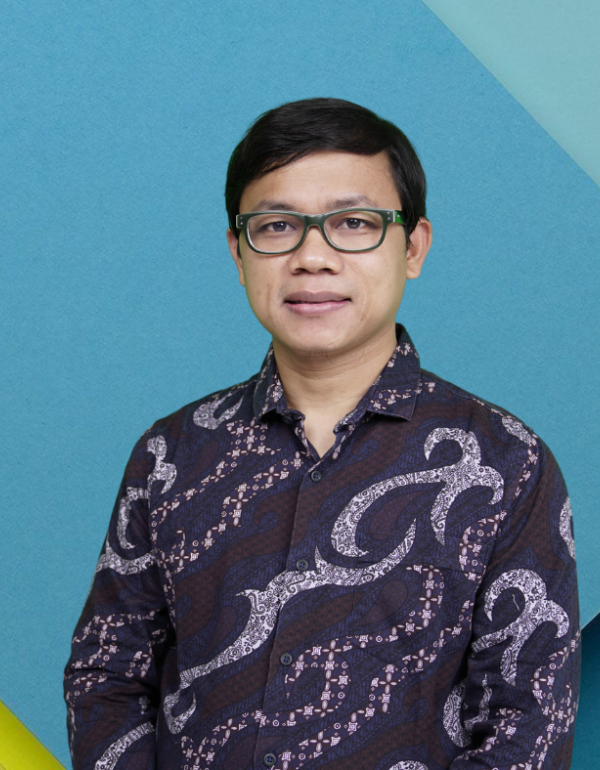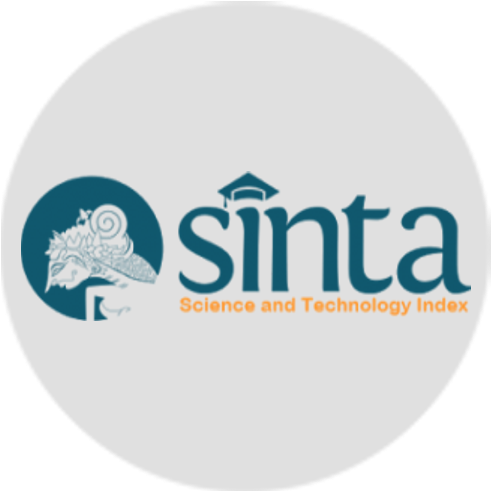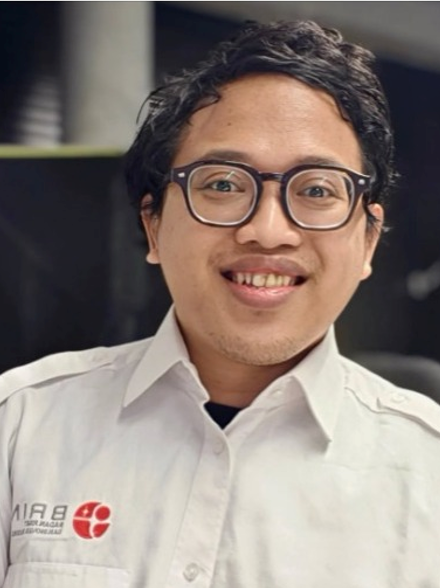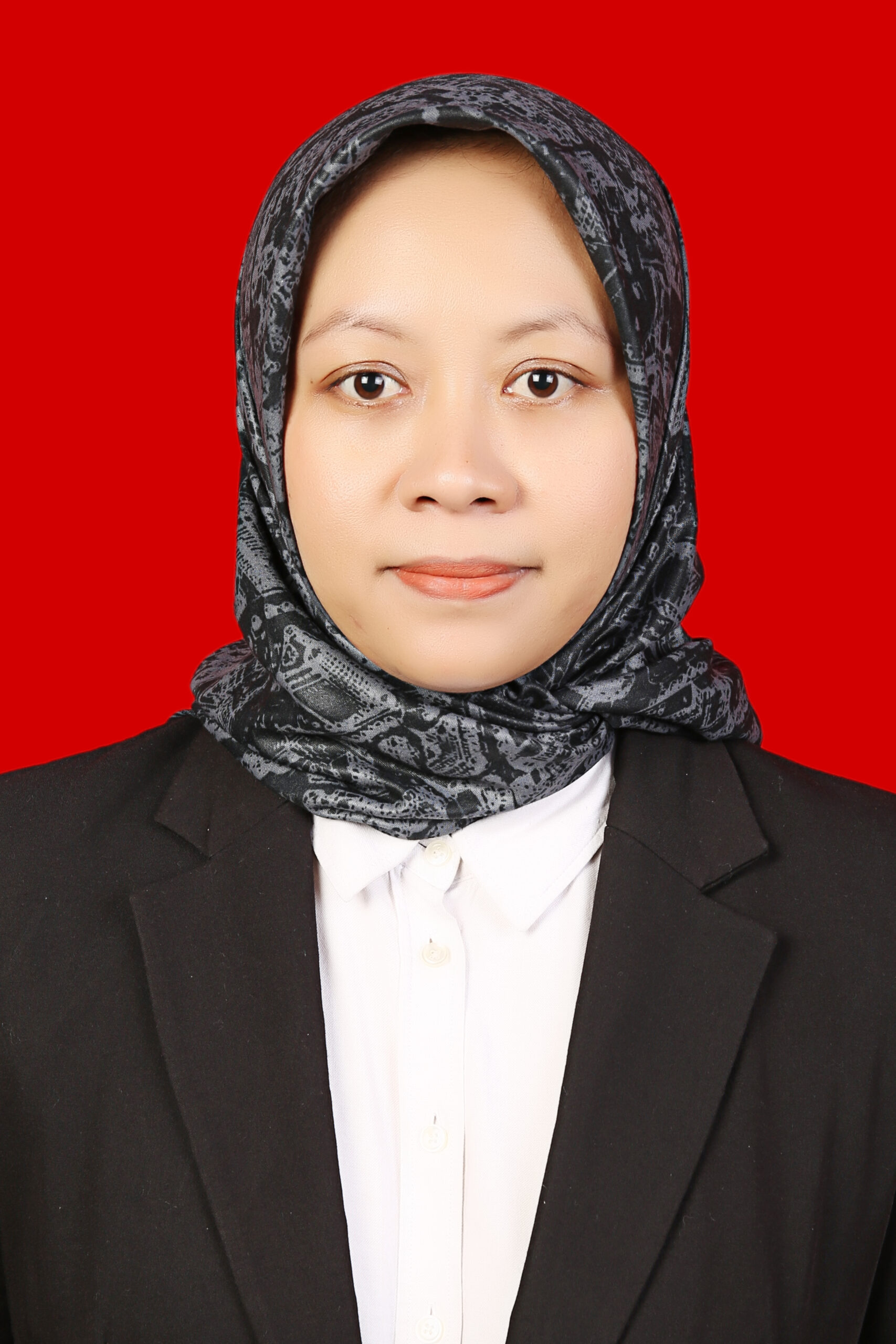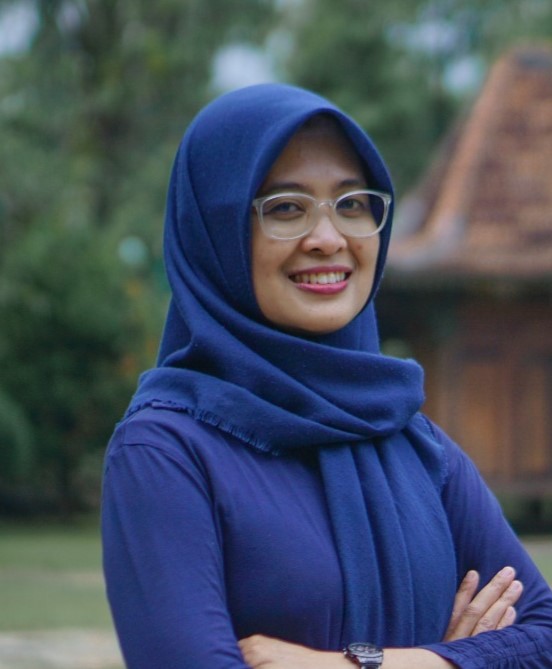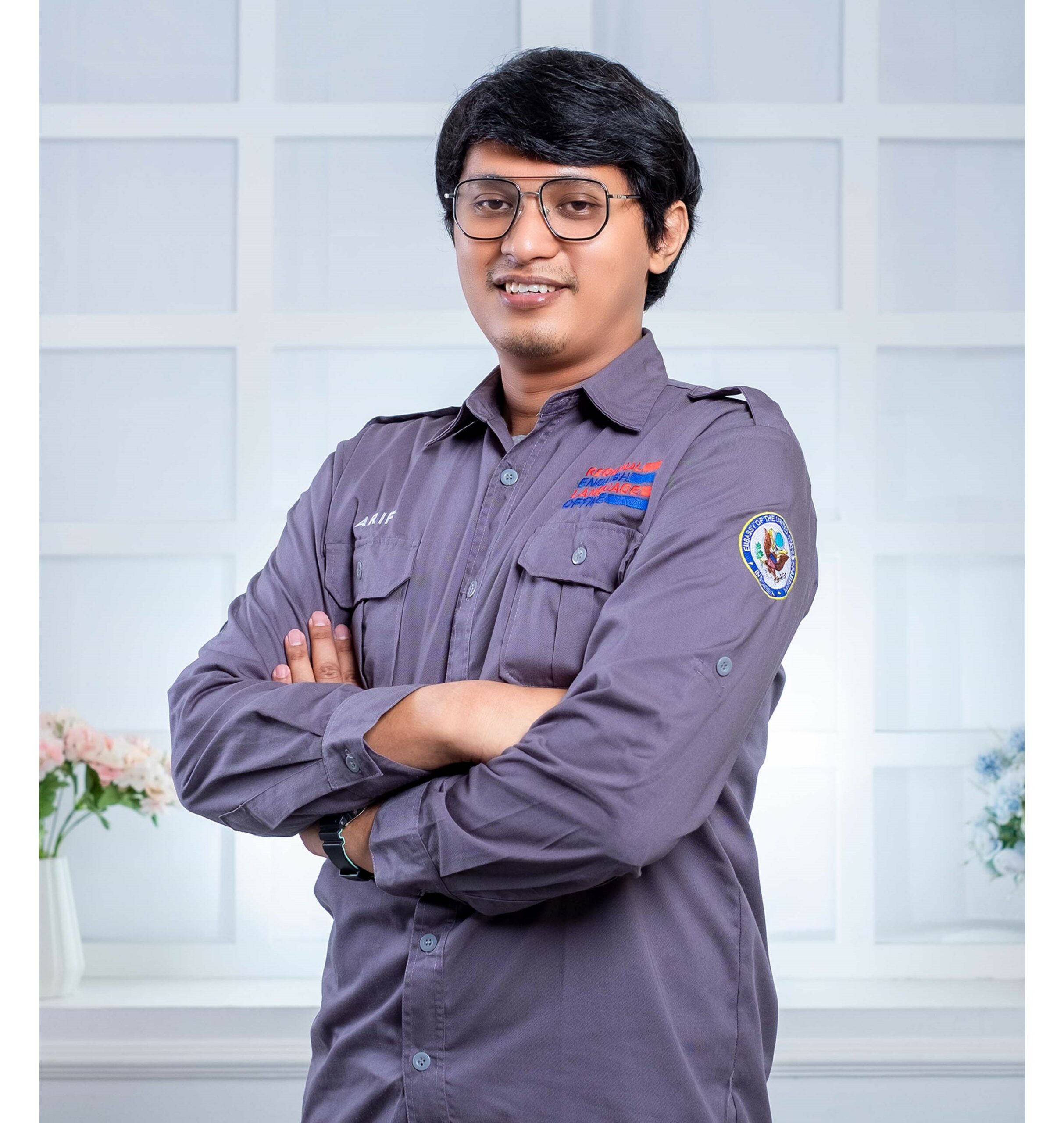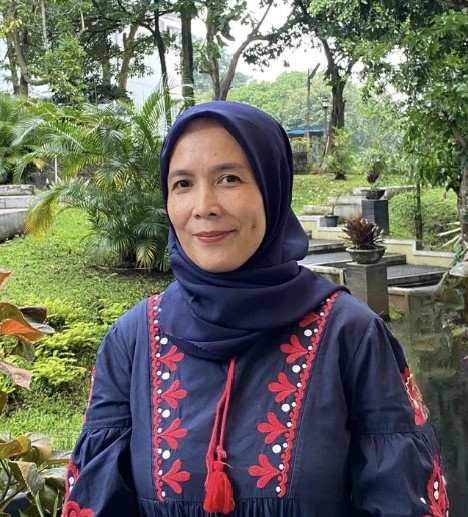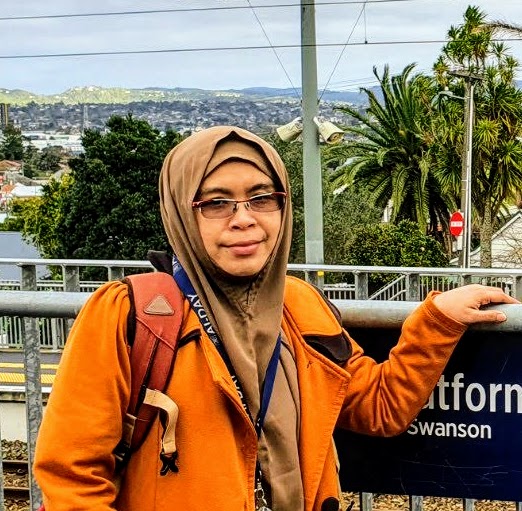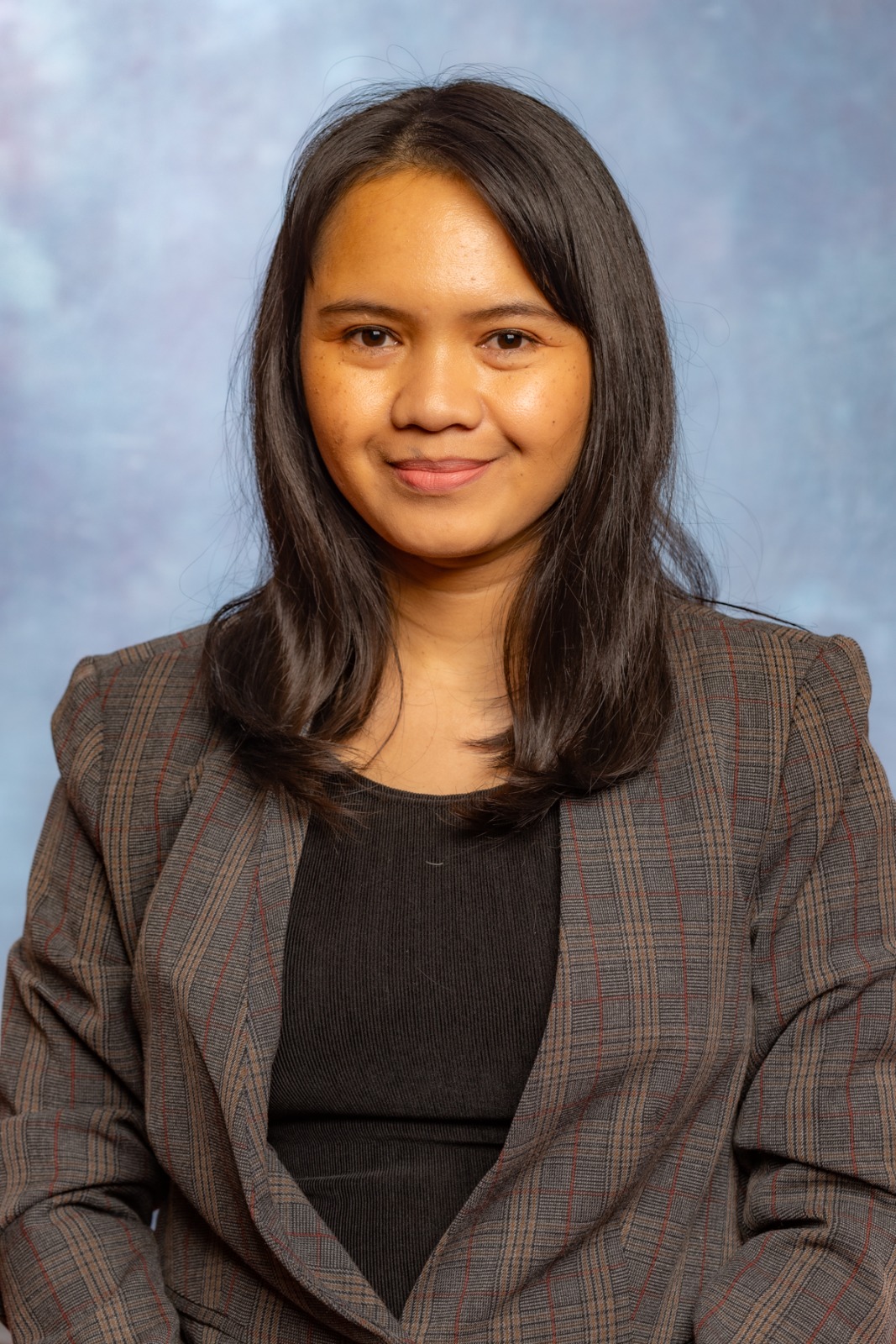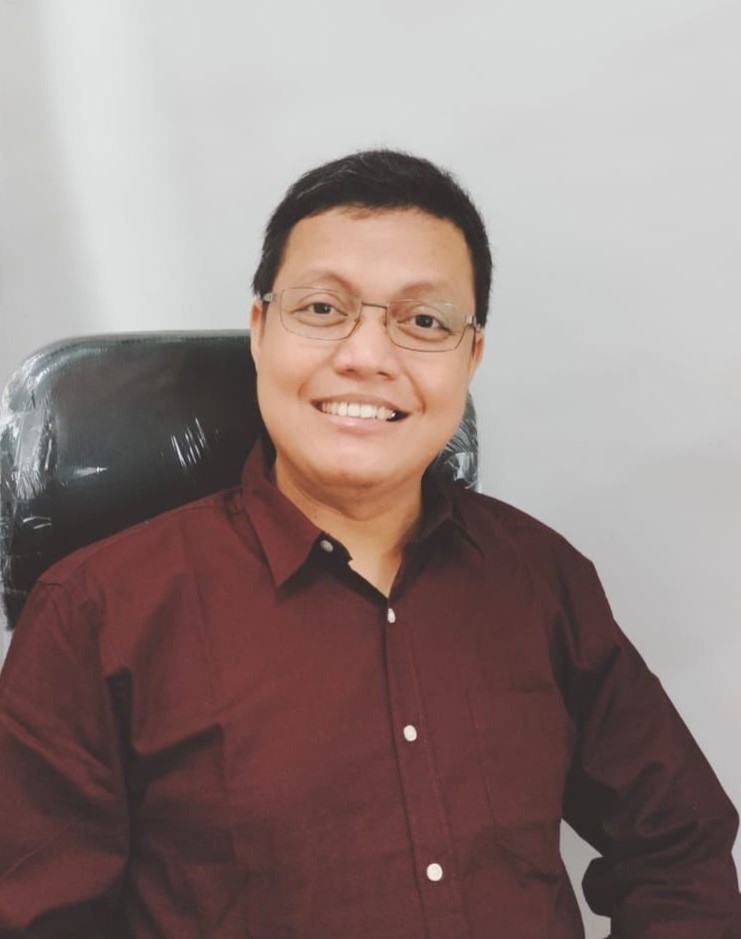Budi Waluyo, Ph.D.
University of Leicester, United Kingdom. 29/01/2021
Master
Prasetiya Mulya University, Indonesia. 15/06/2009
Bachelor
State College of Accounting, Indonesia. 17/05/2005
Polytechnic of State Finance STAN, Jakarta. 2023 – Present
Assistant Professor
Polytechnic of State Finance STAN, Jakarta. 2020 – 2022
Teaching Assistant
School of Business, University of Leicester, United Kingdom. 2017–2019
Lecturer
State College of Accounting, Jakarta. 2006–2015
https://drive.google.com/file/d/1qTjGesF0huj_4aoKJgT1JMnT4r4xKuZp/view?usp=sharing
Waluyo, B. (2022). The tides of agencification: Literature development and future directions. International Journal of Public Sector Management, Vol. 35 No. 1, pp. 34–60.
https://doi.org/10.1108/IJPSM-04-2020-0105
https://drive.google.com/file/d/1FBtk1x7YuOCdBQCZ6s7n3eEobo8wJWS7/view?usp=sharing
Waluyo, B. (2021). Accounting standards for semi- utonomous agencies: experiences and lessons from Indonesia. The Indonesian Journal of Accounting Research, Vol. 24 No. 3, pp. 321–348. https://doi.org/10.33312/ijar.539
https://drive.google.com/file/d/131CrZhcSy5s1gNY9pRdoBUeSWd6yVKky/view?usp=sharing
Waluyo, B. (2018). Balancing financial autonomy and control in agencification: Issues emerging from the Indonesian higher education. International Journal of Public Sector Management, Vol. 31 No. 7, pp. 794–810.
https://doi.org/10.1108/IJPSM-10-2017-0272
https://drive.google.com/file/d/1JZuC7L-_yJ-ZJtZBJ7ZcPH817aJj5V2l/view?usp=sharing
Taufik Ikhsan Slamet, Ph.D.
Indiana University Bloomington, IN, USA (2019-2024)
MA in Instructional Technology
Universitas Negeri Malang (2010-2012)
BA in Educational Technology
Universitas Pendidikan Indonesia (2005-1010)
Department of Educational Technology, State University of Malang, Indonesia
Associate Instructor (August 2021 - May 2023)
Instructional Systems Technology dept., School of Education,
Indiana University Bloomington, IN, USA
Graduate Research Assistant (January-December 2021)
Applied Health Science dept., School of Public Health,
Indiana University Bloomington, IN, USA
University Instructor (September 2014 - August 2015)
Department of Computer Education and Informatics, Surya College of Education,
Tangerang, Indonesia
Training Analyst (Sept 2012 – Dec 2013)
Daya Indosa Pratama, IT Solution Provider for Healthcare and Education, Indonesia
Slamet, T. & Meng, Chen. (in press). Gamification in Collaborative Learning: Synthesizing Evidence through Meta-Analysis. Journal of Computers in Education.
Slamet, T., Brush, T., & Kwon, K. (2024). The Effects of Competition in Gamified Online Discussions on Learners’ Behavioral and Cognitive Engagement. Technology, Knowledge and Learning, 1-27.
Soeharto, S.Pd., M.Pd., Ph.D.
About SIR Fellow
Soeharto, S.Pd., M.Pd., Ph.D. is researcher and academician, currently serving as a Researcher at the Research Center for Education under the National Research and Innovation Agency (BRIN), Jakarta, Indonesia. He is an expert in quantitative and qualitative research methodologies, with a specialized focus on educational sciences, STEM learning, and student misconceptions in science education. Dr. Soeharto holds a Master’s degree in Education from Yogyakarta State University and a Ph.D. in Education from the University of Szeged, Hungary, where he graduated Summa Cum Laude. His academic journey began with a Bachelor’s degree in Education from Tanjungpura University, where he graduated as the best in his class. Dr. Soeharto has received numerous prestigious scholarships, including the Stipendium Hungaricum Scholarship from the Hungarian Government, and the LPDP Scholarship for his Master’s degree. He has been awarded research grants from esteemed institutions, including the Austrian Government’s Ernst Mach Grant for his research on digital skills and teacher quality in inclusive education. Dr. Soeharto’s research contributions have been significant, with 24 publications indexed in Scopus, including articles in Q1 journals. Notable works include studies on student misconceptions in science, digital literacy in pre-service chemistry teachers, and inductive reasoning skills of Indonesian students. He has presented his research at numerous international conferences, further establishing his presence in the global academic community. His professional experience spans various academic roles, from serving as a lecturer and research leader. Additionally, Dr. Soeharto has worked as a visiting researcher at the University of Vienna, Johannes Kepler University and the University of Szeged, contributing to his extensive network and experience in international research. Dr. Soeharto is also an active member of several academic organizations, including the European Association for Research on Learning and Instruction (EARLI) and the Directory of Open Access Journals (DOAJ), where he serves as an associate editor. His teaching activities include supervising graduate students and leading workshops on scientific writing and Rasch modeling for educational research.
For collaboration inquiries or more information, Dr. Soeharto can be reached via email at soeharto @brin.go.id.
- Doctoral School of Education, University of Szeged, Hungary. GPA: 4.88 (Grade 0 – 5) with Summa Cum Laude distinction (highest honor). Thesis Supervisor: Prof. Benő Csapó.
01/08/2014 – 12/08/2016
- Master of Education, Yogyakarta State University, Indonesia. GPA; 3,91 (Grade 0 – 4) with the Best graduated certificate.
01/09/2009 – 12/04/2013
- Bachelor of Education, Tanjungpura University, Indonesia. GPA; 3,91 (Grade 0 – 4) with the Best graduated certificate.
- Researcher, Research Center for Education, National Research and Innovation Agency, Jakarta,
0112/2023 – Present
- Affiliate Researcher, Azerbaijan State University of Economics, Baku, Azerbaijan.
01/05/2023 – Present
- Researcher Fellow, at SZTE, Doctoral School of Education, University of Szeged. Hungary
01/12/2022 – 30/06/2023
- Researcher Fellow, at Centre for Teacher Education, University of Vienna, Austria
01/04/2016 – 01/04/2020
- Lecturer and Research leader at Sekolah Tinggi Ilmu Pendidikan, Singkawang
01/07/2017 – 01/08/2017
- Certified editor from the Indonesian research institute (LIPI), Indonesia
01/09/2012 – 01/04/2013
- Research assistant at the Faculty of Teacher Training and Education
01/04/2010 – 01/04/2012
- Teacher at SSC Institute, Indonesia
Afifah, W., Soeharto, S., Winingsih, L. H., Kadaryanto, B., Raharjo, S. B., Arifiyanti, F., & Lavicza, Z. (2025). Exploring students’ lived experience in online learning during Covid-19 pandemic through a phenomenological hermeneutic perspective. International Journal of Educational Research Open, 9, 100444. https://doi.org/10.1016/j.ijedro.2025.100444
Akhmetova, A., Imambayeva, G., Csapó, B., & Soeharto, Soeharto. (2022). Assessing and validating young Kazakhstanis’ reading skills in English, the impact of classroom climate, and their engagement on reading skills. Indonesian Journal of Applied Linguistics, 12(2), 280–292. https://doi.org/10.17509/ijal.v12i2.37321
Arifiyanti, F., Soeharto, S., Amukune, S., Van Nguyen, S., Aburezeq, K., Hidayatullah, A., & Sarimanah, E. (2023). Investigating rater–student interaction, gender bias, and major bias in the assessment of research seminar presentation. Heliyon, 9(6), e16548. https://doi.org/10.1016/j.heliyon.2023.e16548
Department of Electronic Engineering, Universitas Negeri Padang, Padang, Indonesia, & Dewi, I. P. (2025). The Use of Augmented Reality in Sensor and Actuator Device Learning: Is It Effective in Enhancing Students’ Conceptual Understanding? International Journal of Information and Education Technology, 15(4), 858–866. https://doi.org/10.18178/ijiet.2025.15.4.2292
Hairida, H., Benő, C., Soeharto, S., Charalambos, C., Rasmawan, R., Martono, M., Arifiyanti, F., Winarti, A., & Enawaty, E. (2023). Evaluating Digital Literacy of Pre-service Chemistry Teachers: Multidimensional Rasch Analysis. Journal of Science Education and Technology, 32(5), 643–654. https://doi.org/10.1007/s10956-023-10070-z
Haqiyah, A., Riyadi, D. N., Bujang, B., Abidin, D., Putra, P., Lubis, J., Bahtra, R., Soeharto, S., Hanief, Y. N., Lestari, W. D., Taufik, M. S., & Muslim, B. A. (2024). Validating The Self-Talk Questionnaire of Athletes and How it Affects Athletes’ Mental Toughness? International Journal of Disabilities Sports and Health Sciences, 7(5), 1147–1155. https://doi.org/10.33438/ijdshs.1503594
Haqiyah, A., Sanjaya, K. H., Soeharto, S., Tangkudung, A. W. A., Riyadi, D. N., Lubis, J., Pratiwi, E., Puspitorini, W., Mulyadi, D. Y. N., & Kusumandari, D. E. (2023a). Developing and Validating the Mental Toughness Questionnaire of Athletes Using Rasch Analysis. International Journal of Human Movement and Sports Sciences, 11(3), 650–659. https://doi.org/10.13189/saj.2023.110319
Haqiyah, A., Sanjaya, K. H., Soeharto, Tangkudung, A. W. A., Riyadi, D. N., Lubis, J., Pratiwi, E., Puspitorini, W., Mulyadi, D. Y. N., & Kusumandari, D. E. (2023b). Developing and Validating the Mental Toughness Questionnaire of Athletes Using Rasch Analysis. International Journal of Human Movement and Sports Sciences, 11(3), 650–659. https://doi.org/10.13189/saj.2023.110319
Jatmiko, A., Asyhari, A., Irwandani, I., & Soeharto, S. (2023). The Role of Self-Concept in Modulating the Effectiveness of Nature-Based Science Instruction. Jurnal Pendidikan IPA Indonesia, 12(4), Article 4. https://doi.org/10.15294/jpii.v12i4.48287
Kusuma, I. Y., Bahar, M. A., Nuari, D. A., Prabandari, R., Soeharto, S., Csupor, D., Benkő, R., & Matuz, M. (2024). Antibiotic knowledge assessment questionnaire in undergraduate pharmacy students: A Rasch analysis of validity evidence. Pharmacy Education, 24(1), Article 1. https://doi.org/10.46542/pe.2024.241.5478
Kusuma, I. Y., Benko, R., Bahar, Muh. A., Pitaloka, D. A. E., Soeharto, S., Nuari, D. A., Prabandari, R., Csupor, D., & Matuz, M. (2025). Development and validation of a psychometric scale for assessing pharmacy students’ perceptions and attitudes toward antimicrobial resistance and antimicrobial stewardship in Indonesia: The PATARAS study. BMC Medical Education, 25(1), 805. https://doi.org/10.1186/s12909-025-07375-5
Maričić, M., Anđić, B., Soeharto, S., Mumcu, F., Cvjetićanin, S., & Lavicza, Z. (2025). The exploration of continuous teaching intention in emerging-technology environments through perceived cognitive load, usability, and teacher’s attitudes. Education and Information Technologies, 30(7), 9341–9370. https://doi.org/10.1007/s10639-024-13141-9
Martono, Dewantara, J. A., & Soeharto. (2020). The Ability of Indonesian Language Education Students in Designing Lesson Plan through Teaching Practice in School. Universal Journal of Educational Research, 8(11), 5489–5497. https://doi.org/10.13189/ujer.2020.081152
Nur Rahmi Sonia, Sutiah, Wahidmurni, & Soeharto. (2024). Islamic Leadership, Workplace Spirituality, and Innovative Work Behavior on Teachers’ Islamic Performance: Mediating Role of OCBIP. Cendekia: Jurnal Kependidikan Dan Kemasyarakatan, 22(1). https://doi.org/10.21154/cendekia.v22i1.9092
Radhiah, S., Fakhri, M. M., Ibrahim, M., Rosidah, R., Fadhilatunisa, D., Arifiyanti, F., Soeharto, S., & Vidiyanto, V. (2023). The accuracy of forecasting results of the Box-Jenkins method for time series analysis on the number of pneumonia patients. International Journal of Public Health Science (IJPHS), 12(4), 1753. https://doi.org/10.11591/ijphs.v12i4.22961
Ramadhani, R., Syahputra, E., Simamora, E., & Soeharto, S. (2023). Expert judgement of collaborative cloud classroom quality and its criteria using the many-facets rasch model. Heliyon, 9(10), e20596. https://doi.org/10.1016/j.heliyon.2023.e20596
Riwayani, R., Istiyono, E., Supahar, S., Perdana, R., & Soeharto, S. (2024). Analyzing students’ statistical literacy skills based on gender, grade, and educational field. International Journal of Evaluation and Research in Education (IJERE), 13(2), Article 2. https://doi.org/10.11591/ijere.v13i2.26299
Rosidah, Miftach Fakhri, M., Naufal, M. A., Machmud, M. T., Fadhilatunisa, D., Arifiyanti, F., & Soeharto, S. (2025). From games to gains using geogebra: Investigating microgames and augmented reality in affecting student motivation, confidence and problem-solving strategies in learning mathematics. Education and Information Technologies. https://doi.org/10.1007/s10639-025-13620-7
Sarimanah, E., Soeharto, S., Dewi, F. I., & Efendi, R. (2022). Investigating the relationship between students’ reading performance, attitudes toward ICT, and economic ability. Heliyon, 8(6), e09794. https://doi.org/10.1016/j.heliyon.2022.e09794
Soeharto, S. (2021). Development of A Diagnostic Assessment Test to Evaluate Science Misconceptions in Terms of School Grades: A Rasch Measurement Approach. Journal of Turkish Science Education, 18, 351–370. https://doi.org/10.36681/tused.2021.78
Soeharto, S., & Csapó, B. (2021a). Building a House From Lego Blocks: Using Cross Cultural Validation to Develop the Constructed Motivation Questionnaire (CMQS) in Science. Pedagogika, 142(2), Article 2. https://doi.org/10.15823/p.2021.142.12
Soeharto, S., & Csapó, B. (2021b). Evaluating item difficulty patterns for assessing student misconceptions in science across physics, chemistry, and biology concepts. Heliyon, 7(11), e08352. https://doi.org/10.1016/j.heliyon.2021.e08352
Soeharto, S., & Csapó, B. (2022a). Assessing Indonesian student inductive reasoning: Rasch analysis. Thinking Skills and Creativity, 46, 1–16. https://doi.org/10.1016/j.tsc.2022.101132
Soeharto, S., & Csapó, B. (2022b). Exploring Indonesian student misconceptions in science concepts. Heliyon, 8(9), e10720. https://doi.org/10.1016/j.heliyon.2022.e10720
Soeharto, S., Csapő, B., Sarimanah, E., Dewi, F. I., & Sabri, T. (2019). A Review of Students’ Common Misconceptions in Science and Their Diagnostic Assessment Tools. Jurnal Pendidikan IPA Indonesia, 8(2). https://doi.org/10.15294/jpii.v8i2.18649
Soeharto, S., Martono, M., Hairida, H., Akhmetova, A., Arifiyanti, F., Benő, C., & Charalambos, C. (2024). The metacognitive awareness of reading strategy among pre-service primary teachers and the possibility of rating improvement using Rasch analysis. Studies in Educational Evaluation, 80, 101319. https://doi.org/10.1016/j.stueduc.2023.101319
Soeharto, S., Subasi Singh, S., & Afriyanti, F. (2024). Associations between attitudes toward inclusive education and teaching for creativity for Indonesian pre-service teachers. Thinking Skills and Creativity, 51, 101469. https://doi.org/10.1016/j.tsc.2024.101469
Sudirman, S., Kennedy, D., & Soeharto, S. (2023). The teaching of physics at upper secondary school level: A comparative study between Indonesia and Ireland. Frontiers in Education, 8. https://doi.org/10.3389/feduc.2023.1118873
Sukarelawan, M. I., Jumadi, J., Kuswanto, H., Soeharto, S., & Hikmah, F. N. (2021). Rasch Analysis to Evaluate the Psychometric Properties of Junior Metacognitive Awareness Inventory in the Indonesian Context. Jurnal Pendidikan IPA Indonesia, 10(4), Article 4. https://doi.org/10.15294/jpii.v10i4.27114
Taufik, O. A., Soeharto, S., Ahmad, A. K., Suprapto, Sumarni, An-Nahidl, N. A., Pamungkas, O. Y., Mariah, S., Andini, D. W., & Cahyandaru, P. (2025). The path to teaching Excellence: Examining self-efficacy of pre-service teachers during school internship programs in Indonesia. Social Sciences & Humanities Open, 11, 101619. https://doi.org/10.1016/j.ssaho.2025.101619
Yani T, A., Buyung, B., Rosmaiyadi, R., Marhayani, D. A., Nirawati, R., Triani, S. N., & Soeharto, S. (2025). Examining the relationship between mathematical literacy and digital literacy among pre-service mathematics teachers. Eurasia Journal of Mathematics, Science and Technology Education, 21(5), em2635. https://doi.org/10.29333/ejmste/16392
Dr. Paed. Asih Widi Wisudawati, M.Pd.
About SIR Fellow
Dr. Paed. Asih Widi Wisudawati, M.Pd, has extensive experience in addressing misconceptions in chemistry and developing science learning design in the Indonesian local context. She is the head of the Department of Chemistry Education at UIN Sunan Kalijaga Yogyakarta. Her research focuses on assessing students’ conceptions, systems thinking, sustainability, and digitalization in chemistry education. According to the leadership of the chemical society, she leads the publication division within the Indonesian Chemical Society, known in Bahasa as Himpunan Kimiawan Indonesia (HKI), particularly in the chemistry education division. Internationally, she participates in the chemistry education group called DICE, or Digitalization in Chemistry Education, under the German Chemical Society. Besides her active involvement in the chemical society, she has several international collaboration roles related to journal reviewing, including for the Journal of Environmental Research and Technology at Yildiz Technical University, Journal Ecletica Quimica from Brazil, Global NEST journal from the University of Aegean Greece, and the Journal of Chemical Education from the American Chemical Society (ACS). She has been an invited speaker at numerous conferences in Indonesia and around the world, with her most recent conference being CLEAR 2025, focused on developing chemistry laboratory assessment. Based on Google Scholar, since 2018, her works have been cited by 2,427 scholars both in Indonesia and globally. Currently, she is concentrating on Design-Based Research (DBR) utilizing a systems thinking approach in the context of sustainability, exploring themes such as ocean acidification, Food Loss and Waste (FLW), and bioplastics. While focusing on sustainability, she specializes in conducting Qualitative Content Analysis (QCA) to reveal students’ (miss)conceptions arising from school textbooks, learning processes, or public statements on social media platforms. All her concerns aim to foster innovative solutions in (chemistry) education. Her motto is “Together we are more!”
University of Muenster, NRW, Germany
M.Ed in Chemistry Education (December 2007)
University of Sebelas Maret, Indonesia
B.S in Chemistry Education (June 2006)
University of Sebelas Maret, Indonesia
UIN Sunan Kalijaga Yogyakarta Indonesia
Teaching Assistant of History of Chemistry (2019-2021)
The University of Muenster Germany
Assistant Professor of Chemistry Education (2009-2019)
UIN Sunan Kalijaga Yogyakarta Indonesia
Instructor for science education teacher training (2008-2010)
Universitas Terbuka
Teacher in School for chemistry subject (2005-2010)
Senior High School, Jakarta
Book Chapter:
Wisudawati, A.W. & Eka. S. (2014). Methodology of Science Learning for Secondary School (Book Chapter). Bumi Aksara: Jakarta Indonesia.
Journal Articles:
Wisudawati, A.W. (2012). Analysis of needs assessment of chemistry learning models Direct Instruction oriented by Thinking Inductively to improve student life skills. Journal
Chimica Didactica Acta Universitas Syiah Kuala Banda Aceh Vol. 1, No.1, June 2013 ISSN: 2338-4522/, https://jurnal.usk.ac.id/JCD
Nur Rochmah L & Wisudawati, A.W. (2015). Analysis of Indonesia’s National Test for Senior High School Cluster B in Higher-Order Thinking Skill (HOTS) academic years in 2012/2013. Kaunia Science and Technology Journal Vol XI, No.1,
Wisudawati, A.W. (2017). Instrumen Tes Islam Kimia (Itik) Untuk Mendeteksi Pemahaman Level Mikroskopis Materi Air (Bahasa) Intrument (itik) to detect microscopic understanding in water structure (English). Journal of Chemistry education research Vol.1, No.1
https://journal.unesa.ac.id/index.php/jcer/article/view/1927/0,
DOI:http://dx.doi.org/10.26740/jcer.v1n1.p1-11
Adawiyah, R. & Wisudawati, A.W. (2017). Pengembangan Instrumen Tes Berbasis Literasi Sains (Bahasa) Developing Test Intrument based on Science Literacy (English). Indonesian Journal of Curriculum and Educational Technology Studies, 5(2), 112-121. Curriculum and Educational Technology Department. Retrieved November 29, 2019, from https://journal.unnes.ac.id/sju/index.php/jktp/issue/view/1240
Khairunnissa & Wisudawati, A.W. (2018). Pengaruh Model Pembelajaran Treffinger terhadap kreativitas berpikir kimia pada peserta didik kelas XI di SMAN 1 Sewon (Bahasa) Influence of Treffinger learning models to creative thinking in Chemistry for students grade
11 SMA 1 Sewon (English). Jurnal Tadris Kimiya UIN Sunan Gunung Jati Bandung Indonesia Vol.3 No.1, DOI: https://doi.org/10.15575/jtk.v3i1.2325,
https://journal.uinsgd.ac.id/
Wisudawati, A.W. (2018). Science Technology Engineering and Mathematics (STEM) Education Approach Against a Microscopic Representation Skill in Atom and Molecule Concept. International Journal of Chemistry Education Research Vol 2 Issue 1, DOI:
https://doi.org/10.20885/ijcer.vol2.iss1.art1
https://journal.uii.ac.id/IJCER/article/view/10067
Mariana Fitria & Wisudawati, A.W. (2018) The Development of Ethnoscience-Based Chemical Enrichment Book as A Science Literacy. International Journal of Chemistry Education Research Vol 2 Issue 1
DOI: https://doi.org/10.20885/ijcer.vol2.iss1.art8
https://journal.uii.ac.id/IJCER/article/view/10083
Hans-Dieter Barke, Asih Widi Wisudawati, Mercedeh Hassan Pour Awilag, Joline Büchter. (2019) Acid-base and redox reactions on sub-micro level: Misconceptions and
challenge. African Journal of Chemical Education Vol.2 No.1 https://www.ajol.info/index.php/ajce/article/view/183073
Ariyani, R. N., & Wisudawati, A. W. (2019). Pengembangan Buku Panduan Outbound IPA SMP/MTs dengan Guided Note Taking (Bahasa), Development Outbond books with Guide note taking for science subject in SMP/Mts (English). Journal of Tropical Chemistry Research and Education, 1(1), 1-7.
http://pkimuin-suka.ac.id/journal/index.php/JTC-RE/article/view/11.
Sutrisno & Wisudawati, A.W. 2020. Grand Design Instrument of Potential Abilities for Placement Test. Edukasia: Jurnal Penelitian Pendidikan Islam Vol 15, no 1.
http://dx.doi.org/10.21043/edukasia.v15i1.6835
https://journal.iainkudus.ac.id/index.php/Edukasia/article/view/6835
Wisudawati, A. W., Barke H-D. (2022). Students’ and Teachers’ Perceptions for Composition of Ionic Compounds. Journal Chemistry Teacher International De Gruyter. Submitted in October 2021, accepted November 27, 2021, Published April 6, 2022.
https://doi.org/10.1515/cti-2021-0032
https://www.degruyter.com/document/doi/10.1515/cti-2021-0032/html
Sandra Hermanto, Tarso Rudiana, Muhammad Ihda Hamlu Liwaissunati Zein, Wisudawati, A-W. (2022). Methods Validation of Pork Authentication in Processed Meat Products (Sausages) Through Densitometry Analysis. Indonesian Journal of Halal Research, 4, 1 (2022): 35-44. DOI: 10.15575/ijhar.v4i1.11892
https://journal.uinsgd.ac.id/index.php/ijhar/
Wisudawati, A-W., Barke H-D. (2022). Proton transfer: The first-year students’ conceptual understanding.
Journal http://dx.doi.org/10.15575/jtk.v7i2.21029
Tadris Kimiya Vol 7, No 2
Wisudawati, A.W., Barke H-D. (2024). Systems thinking approach to understand Indonesia's ocean acidification. Sustainable Chemistry and Pharmacy received 30
September 2024, accepted 27 November 2024.
https://doi.org/10.1016/j.scp.2023.101384
Zulfa Sakhiyya, Ph.D.
About SIR Fellow
Zulfa Sakhiyya is Associate Professor at the Faculty of Languages and Arts, Universitas Negeri Semarang and a Fulbright Visiting Scholar in Ohio State University in 2023. She is the Communication Director of the Indonesian Young Academy of Science (ALMI). Zulfa is a discourse analyst focusing on how knowledge is produced and represented, and published in the area. Her work has been published in journals such as Gender and Education; Globalization, Societies and Education, International Journal of Multilingualism, and Pedagogy, Culture and Society. Zulfa receives the Barr Mosenthal Awards granted by the International Literacy Association in 2022 for her literacy research in Indonesia.
The University of Auckland, New Zealand (2018)
Master of TESOL
La Trobe University, Australia (2010)
Bachelor of English Education
Semarang State University (2002)
Universitas Negeri Semarang
Director of Communication
the Indonesian Young Academy of Science
Sakhiyya, Z., & Wijaya Mulya, T. (2023). Education in Indonesia: equity and social justice. Singapore: Springer.
Sakhiyya, Z. (2023). Decolonizing Internationalizing or Decolonizing the Curriculum, Academic Self, and Research? Exploring decolonization initiatives in three Indonesian universities. In Internationalization of Higher Education from Asian Perspectives: Insights into Policies,
Practices and Prospects, Tran, Zou & Ota (eds). London: Routledge.
Sakhiyya, Z. & Hapsari, C. (2021). Critical Literacies in Indonesia. In Handbook of Critical Literacies, Pandya, J., Mora, R., Golden, N & de Roock, R (eds). UK: Routledge.
Sakhiyya, Z. & Fitzgerald, T. (2021). Feminist critical perspectives on educational leadership in Indonesia. In Understanding Educational Leadership, Courtney, S., Gunter, H,. & Niesche, R. (eds). UK: Bloomsbury.
Sakhiyya, Z. (2020). The history of higher education in Indonesia. Symaco & Jacob (eds). Bloomsbury Education and Childhood Studies. UK: Bloomsbury.
Sakhiyya, Z. (2019). Globalization in higher education: Indonesia. Symaco, L.P, & Jacob, J. (eds). Bloomsbury Education and Childhood Studies. UK: Bloomsbury.
Sakhiyya, Z. (2020). Multilingualism, Language Policy, and Education. Semarang: LPPM UNNES Press.
Sakhiyya, Z. & Luthfia, K. (2019). Understanding Functional Texts. Semarang: UNNES Press.
Humaedi, A. & Sakhiyya, Z. (2011). A Case Study on the Role of Mosque in Disaster Situation in Indonesia: six mosques in five locations. Jakarta: UN-OCHA.
Sakhiyya, Z., Arsana, A. & Rahmadewi, M. (2011). Education Counts! The contribution of Indonesian students studying overseas for education in Indonesia. Yogyakarta: Insightmedia.
Sakhiyya, Z. (2010). Teacher Certification in Indonesia: for qualified or quantified teachers? Zein, M S. (ed). Contribution Matters! Canberra: PPIA ACT Press.
Sumardiyani, L. and Sakhiyya, Z. (2007). Speaking for Instructional Purpose: A Handbook. Semarang: IKIP PGRI Press.
Journal Articles:
Rakhmani & Sakhiyya. (2024). The cultural political economy of knowledge in neoliberal Indonesia. Journal of Contemporary Asia. Q1 – Routledge.
Rakhmani, I. & Sakhiyya, Z. (2023). Inequalities and social science in neoliberal Indonesia. (2023). International Social Science Journal. Q2 – Wiley.
Sakhiyya, Z., Fitzgerald, T., Rakhmani, I., Eliyanah, E., & Farida, AN. (2023). Indonesian female academics and the pandemic: the challenges of COVID-19 and academic work. Journal of Higher Education Policy and Management. Q1 - Routledge
Sakhiyya, Z. Hapsari, CT, Sumaryani, S., & Farida, AN. (2023). From protest march to digital campaign: women’s movement and critical literacies in Indonesia. Gender and Education. Q1 – Routledge.
Alemu, SK, Qu, M. & Sakhiyya, Z. (2022). Voices of internationalisation of higher education from sub-Saharan Africa, China and Indonesia. Learning and Teaching (LATISS Journal). Q2 – Berghahn.
Hustarna, Saleh, M., Fitriati, S.W., & Sakhiyya, Z. (2022). Teacher Cognition about Online Listening Instruction: A Case Study at a Public University in Indonesia. Journal of ASIA TEFL. Q1 – Routledge. 1
Wijaya Mulya, T., Sakhiyya, Z., Bukhori Muslim, A., & Suryani, A. (2022). Locally-grounded, embodied, and spiritual: exploring alternative constructions of democratic education with/in Indonesian schools. Pedagogy, Culture & Society, 1-17. Q1 - Routledge
Sakhiyya, Z., Saraswati, G., Anam, Z. & Azis, A. (2022). What’s in a name? Crisis communication during the COVID-19 pandemic in multilingual Indonesia. International Journal of Multilingualism. Q1 - Routledge
Sakhiyya, Z. (2022). Cosmopolitanism or cosmopolitics ? The roles of university elites in the internationalisation of Indonesian higher education. Globalisation, Societies and Education. Q1 - Routledge
Nugroho, K. Y., & Sakhiyya, Z. (2022). Photovoice: Young children online English language learning, parents’ voices and its implication to educational policy and provision. Indonesian Journal of Applied Linguistics, 11(3), 612–622. Q2 - Scopus indexed.
Sakhiyya, Z. (2021). Problematizing policy: a semantic history of the word ‘policy’ in the Indonesian language. Critical Policy Studies. Q1 – Routledge – Scopus-indexed journal.
Sakhiyya, Z. & Martin-Anatias, N. (2020). Reviving the language at risk: a social semiotic analysis of the linguistic landscape of three cities in Indonesia. International Journal of Multilingualism. Q1 – Routledge – Scopus-indexed journal.
Mulya, T. & Sakhiyya, Z. (2020). 'Leadership is a sacred matter': Women leaders contesting and contextualising neoliberal meritocracy in the Indonesian academia. Gender and Education. Q1 – Routledge.
Nugroho, K., Sakhiyya, Z., Saleh, M. & Mujiyanto, J. (2020). Exploring the Constructivist Mentoring Program in Developing EFL Teacher Professionalism: A Qualitative Approach. Indonesian Journal of Applied Linguistics. 10, (1). Q2 – Scopus-indexed.
Sakhiyya, Z. & Locke, K. (2019). Empowerment vs. meritocracy discourses in Indonesian public universities: The case of female leaders. Asian Journal of Women's Studies. 25, (2), 198-216. DOI: 10.1080/12259276.2019.1610210. Routledge – Scopus-indexed.
Sakhiyya, Z. & Rata, E. (2019). From Priceless to Priced: The Value of Knowledge in Higher Education. Globalisation, Societies and Education. Q1 - Taylor and Francis, Routledge – Scopus-indexed journal.
Sakhiyya, Z., Agustien, HIR., & Pratama, H. (2018). The Reconceptualisation of knowledge base in the pre-service teacher education curriculum: towards ELF pedagogy. Indonesian Journal of Applied Linguistics. 8, (1). Q2 – Scopus-indexed.
Sakhiyya, Z. (2017). Negotiating Social Identity through Questions in Casual Conversations: a critical discourse analysis. Indonesian Journal of Applied Linguistics. 6, (2), 311 – 318. Q2 – Scopus-indexed journal.
Sakhiyya, Z. (2013). Question formation of Bahasa Indonesia as a Second Language. Indonesian Journal of Applied Linguistics. 3, (1), 138-147. Q2 – Scopus- indexed journal.
Sakhiyya, Z. (2011). Interrogating Identity: The policy of international standard school in Indonesia. Pedagogy, Culture & Society. 19, (3), 345-365. Q1 – Routledge.
M. Arif Rahman Hakim, Ph.D.
About SIR Fellow
M. Arif Rahman Hakim, Ph.D is a lecturer at the Faculty of Tarbiyah & Tadris (Undergraduate) and the Postgraduate Program at UIN Fatmawati Sukarno Bengkulu since 2015. His current academic position is Associate Professor. He is also a Scholar in Residence (Visiting Fellow) at the Faculty of Education, Universitas Islam Internasional Indonesia (UIII) Depok. The subjects he teaches are English, Curriculum & Teaching Materials Development, and Course Design. Meanwhile, outside campus, he is an educational consultant and co-founder of English Academy Bengkulu, a course institution with three offices in Bengkulu City, Sebatik Island (North Kalimantan), and Penang (Malaysia).
Since 2016, Dr. Hakim has been actively collaborating in teaching and research with several academic colleagues from countries such as the United States, England, Malaysia, Pakistan, Germany, Thailand, India, and Taiwan. His research topics of expertise are English language teaching models and strategies, teachers’ competencies, teacher professional development, and teaching materials design & development. In 2021 & 2022, he was also entrusted as the Coordinator and instructor for the Ph.D Preparation Training (PPSL-LN) scholarship program, as well as the Beasiswa Indonesia Bangkit Scholarship interviewer for the postgraduate program. Currently, Arif is also a national board reviewer for research, community service, and scientific publications (Litapdimas) of the Ministry of Religious Affairs of the Republic of Indonesia, a reviewer for the Cogant Arts & Humanities Journal published by Taylor & Francis, and also one of 12 Master Trainers in the English Language Teacher Training program (ELLT) funded by the Regional English Language Office (RELO) of the United States Embassy Jakarta Indonesia and World Learning USA.
Universiti Sains Malaysia, Malaysia (2021)
Master's Degree in English Education
Universitas Islam Malang, Indonesia (2014)
Bachelor's Degree in English Education
STAIN Bengkulu, Indonesia (2012)
Indonesian International Islamic University (UIII) Depok
September 2024 - Present
Lecturer (Associate Professor)
Universitas Islam Negeri Fatmawati Sukarno (UINFAS) Bengkulu
March 2015 - Present
Co-owner & Manager for Academic and Quality Control
English Academy Bengkulu
January 2015 - Present
Master Trainer for ELTT Project
Regional English Language Office (RELO) U.S. Embassy Jakarta
March 2022 - March 2023
Academic Senate Chairman 8
Sekolah Tinggi Ilmu Ekonomi Syariah Nahdlatul Ulama (STIESNU) Bengkulu
January 2022 - November 2023
Director
Center of ASEAN Studies, Universitas Islam Negeri Fatmawati Sukarno (UINFAS) Bengkulu
March 2021 - January 2022
Researcher
Inspirasi Akbar Sdn. Bhd. Penang, Malaysia
January 2019 - January 2022
Coordinator for Publication, Media & KPPSLN
Panitia Pemilihan Luar Negeri (PPLN) Komisi Pemilihan Umum (KPU) Perwakilan RI, Penang, Malaysia
March 2018 - July 2019
M. Arif Rahman Hakim, Yashori Revola & Reko Serasi. (2024) Kompetensi Pedagogik Guru Bahasa Inggris di Madrasah & Pesantren. Bandung: Alfabeta
M. Arif Rahman Hakim. (2022). What Covid-19 Pandemic Has Altered English Teachers Teaching
Practice. Yogyakarta: Bintang Semesta Media
M. Arif Rahman Hakim, Reko Serasi & Tri Nur Susanti. (2022). Mastering Basic English. Yogyakarta: Samudera Biru
M. Arif Rahman Hakim & Agustina Indah Bahari. (2016). Let’s Speak (Advanced Level). Yogyakarta: Deepublish
Articles:
M. Arif Rahman Hakim, & Andri, S. (2018). How A Learner Learns and Acquires English as A Foreign Language: A Case Study. The Journal of Asia TEFL, 15(3), 838-845 (Indexed by Scopus Q1)
M. Arif Rahman Hakim & Mohamad Jafre. Z. A. (2018): Developing public speaking materials based on communicative language teaching for EFL learners in Indonesia. ELT in Asia in the Digital Era: Global Citizenship and Identity. 15th Asia TEFL and 64th TEFLIN International Conference on English Language Teaching. Routledge. 129- 134 (Indexed by Web of Science)
M. Arif Rahman Hakim., Mohamad Jafre. Z.A, & Nur Ilianis Adnan. (2020). Using the ASSURE Model in Developing an English Instructional Module for Indonesian Migrant Workers in Penang, Malaysia. In Charting a Sustainable Future of ASEAN in Business and Social Sciences (pp. 383-390). Springer, Singapore (Indexed by Springer group)
M. Arif Rahman Hakim, & Ori Andika Putra. (2021). Comprehension of Academic Communication Among Indonesian Students at a Public University in Malaysia. The Journal of Asia TEFL, 18(2), 633-639 (Indexed by Scopus Q1)
M. Arif Rahman Hakim, Reko Serasi,Yashori Revola, Nur Ilianis Adnan & Ade RIska Nur Astari (2023). The Reconstruction of Blended Learning Teaching Model for Full Online Learning System: A Study on English Education Department in Islamic Universities in Indonesia. International Journal of Learning, Teaching and Educational Research, 22(4), 1-20 (Indexed by Scopus Q3)
Gin Gin Gustine, Ph.D.
About SIR Fellow
Gin Gin Gustine is a dedicated researcher and faculty member with extensive experience in the field of English language education. Currently serving as an Associate Professor at English Education Study program in Universitas Pendidikan Indonesia (UPI), she has been actively involved in both academic and applied research for over 23 years. Her research focuses on language and literacy education, teacher professional development, collaborative online international learning, and her works have contributed to advancements in English as Foreign Language (EFL) teaching and learning. She has been granted numerous and competitive research fund, both from the Indonesian Ministry of Education and local institutions and published numerous articles in peer-reviewed journals and presented at international conferences, showcasing her commitment to advancing knowledge in her field. She holds a Doctoral degree in field of language and literacy education from Deakin University, Australia, along with prior degrees from UPI. When not immersed in academic pursuits, she enjoys spending time in nature and savouring the aroma of freshly brewed coffee in her hometown, Bandung.
Deakin University, Australia
2014
Master in English Education
Universitas Pendidikan Indonesia
2006
Bachelor in English Education
IKIP Bandung
1999
Universitas Pendidikan Indonesia
2001 - Now
Translator at Save the Children International Institute
2017 - 2018
Academic Tutor at School of International Politics, Deakin University, Australia
2010 - 2012
Bahasa Teacher at Christian College Geelong, Australia
2010 - 2013
Bahasa Teacher at St. Francis Xavier, Geelong, Australia
2010 - 2013
Bahasa Teacher at Matthew Flinders Secondary School,
Geelong, Australia
2010 - 2013
Translator for Japan-Indonesia Corporate Agency (JICA)
2002 - 2007
Translator for BRAILLO International Institute
2002 - 2005
Sri Setyarini, and Gustine, Gin Gin and Harto, Sri and Muslim, Ahmad Bukhori (2021) Promoting students’ critical speaking skill through Plus-Minus-Interesting (PMI) strategies : a case study of Indonesian junior high schools. 3L; Language,Linguistics and Literature,The Southeast Asian Journal of English Language Studies., 27 (3). pp. 199-214. https://ejournal.ukm.my/3l/article/view/42880
Gustine, G. (2021). "How Do You Work Out This Zoom Classroom?": Pre-service English Teachers’ Challenges and Expectations During Transition to Online Teaching Practicum. Research and Innovation in Language Learning, 4(1), 68-78. doi:http://dx.doi.org/10.33603/rill.v4i1.4301
Sophia Fithri Al-Munawwarah, Gin Gin Gustine, Bachrudin Musthafa. (2020). Fostering Students’ Critical Reading Through Digital Short Story Trailer Project. https://www.atlantis-press.com/proceedings/conaplin-20/125956015
Gustine, G., & Insani, H. (2019). English students’ experience of reframing narrative stories from a critical literacy perspective. Indonesian Journal of Applied Linguistics, 8(3), 691-696. doi:https://doi.org/10.17509/ijal.v8i3.15254
Muhammad Kamarul Kabilan, Malini Ganapathy, Eric Bray, Gin Gin Gustine and Mizna Qasim. (2019). Facebooking Across Asia – Learning English Along the Way? Pertanika Journal of Social Science and Humanities, Volume 27, Issue 1, March 2019. http://www.pertanika.upm.edu.my/pjssh/browse/regular-issue?article=JSSH-2588-2017
Ni Kadek Heny Sayukti, Wachyu Sundayana, Gin Gin Gustine. (2019). Teaching Independent Reading in Supporting Balanced Literacy Learning for Young Learner. https://www.atlantis-press.com/proceedings/icollite-18/55915096
Gustine, G. (2018). A SURVEY ON CRITICAL LITERACY AS A PEDAGOGICAL APPROACH TO TEACHING ENGLISH IN INDONESIA. Indonesian Journal of Applied Linguistics, 7(3), 531-537. doi:https://doi.org/10.17509/ijal.v7i3.9798
Gustine, G (2013. Designing and implementing a critical literacy-based approach in an Indonesian EFL secondary school. International Journal of Indonesian Studies, Vol 1
Naning Tri Wahyuni, Ph.D.
About SIR Fellow
She is an experienced professional at the tertiary level of Education with a bachelor’s degree in Applied Science (distinctive), a master’s degree in Education (magna cum laude), and a PhD degree in Applied Language Studies and Linguistics from the University of Auckland (with a distinguished graduate award). She received various scholarships and funding from my undergraduate to my master’s and PhD studies, signifying substantial degrees of her passion, effort, and accomplishment. She worked at the tertiary level of Education for decades as a tutor, instructor, consultant, lecturer, and researcher. She has lived overseas for over a decade (in Australia, the UK, and New Zealand) and has gained great work and study experience, including global networking, friendship, and relationships. She is an organised, personable, and action-oriented person with a deep passion for working with students from various cultural backgrounds, including internationally and multiculturally related backgrounds.
2023
Master’s degree in education (Major: English Language Education) from Universitas Muhammadiyah Surakarta, Indonesia
2015
A Diploma in Children's Education, National Open College-Southampton, The UK
2011
A Diploma in Early Learning Education (NVQ Level 2 – the UK Educational Standard), Eastleigh College. Southampton-United Kingdom.
2009
Bachelor’s degree in forestry (Major: Forest Product
Technology) from Universitas Gadjah Mada, Jogjakarta, Indonesia
2002
2022 - 2023
Casual academic staff at the University of Auckland of New Zealand, Department of Early Childhood Education Centre
2018 - 2022
English lecturer and Instructor. LPIDB (Language Centre of the Muhammadiyah University of Surakarta) and International Class programs, International Office, Muhammadiyah University Surakarta, Indonesia
2015 - 2018
Teacher educator and educational consultant at Al Abidin International Schools. Al Abidin Institution, Surakarta, Indonesia
2014 - 2018
a permanent staff at the Student Services Department,
University of Southampton, England, the United Kingdom
2009 - 2013
Wisnu Kristanto, Nur Hidayat, Naning Tri Wahyuni and Much Koiri (2023): Optimizing online English language learning and teaching, Education 3-13, http://doi.org/10.1080/03004279.2023.2251964.
Wahyudi, T. N., Adityarini, H., Harsono, H., Puspitasari, A., Wahyuni, N. T. (2023). The effect of the use of the internet for learning activities and pedagogic abilities on teacher performance. Journal of Higher Education Theory and Practice 23(9). https://doi.org/10.33423/jhetp.v23i9.6127.
Wahyuni, N. T. (2022). Investigating Primary School Students’ Development of Interest in English Language Learning: Classroom-Related and Parental Involvement. A Ph. D Thesis. https://researchspace.auckland.ac.nz/handle/2292/61839.
Wahyuni, N. T. (2022). Trial of synthetic phonics extended to storybook reading to improve the reading skills of Indonesian third graders enrolled in a bilingual school. International Journal of Instruction, 15(4), 1091-1112. https://doi.org/10.29333/iji.2022.15458a.
Wahyuni, N.T. (2020). A review: The power of interest for motivation and engagement, Renninger, K. A. & Hidi, S. E. (2016), New York: Routledge. TESOLANZ, 28:109 – 111. ISSN 1172-9694.
Wahyuni, N.T. (2020). Catalyst in the family system: The nexus between parental involvements and child's language learning development. Proceeding of CLL and ALANZ Symposium 2020, Association of Applied Linguistics in Aotearoa New Zealand. http://doi.org/10.13140/RG.2.2.19545.95846.
Wahyuni, N.T. (2019). Bringing Children's topic interest to improve their participation in English reading class. Proceeding of Inaugural Conference on Language Teaching and Learning: Cognition and Identity. The Education University of Hong Kong.
Wahyuni, N.T., Fauziati, E., Hikmat, M.K., (2016). The effectiveness of using phonics instruction and storybooks in English reading classes to improve student participation. Jurnal Penelitian Humaniora, 17/1.
Wahyuni, N. T. (2015). Developing Phonics-Based Combined with Book Reading Program In English Teaching Reading For Young Learners: Research And Development at an Indonesian Bilingual School. A master’s Thesis. UMS Repository.
Wahyuni, N.T., Fauziati, E., Hikmat, M.K., (2015). Exploring the Effectiveness of Phonics Instruction-Enhanced Book Reading Program in Developing Early Reading Skills of Indonesian Young Learners. UMS Repository.
Maretha Dellarosa, Ph.D.
The Ohio State University, U.S.A.
2018 - 2022
Master of Arts (M.A.) in Rethinking Early Childhood and Elementary Education (RECEE)
The Ohio State University, U.S.A.
2014 - 2016
Bachelor in Elementary Teacher Education Program,(S.Pd)
The State University of Surabaya, Indonesia
2007 - 2011
2023
Summer Associate, QualLab, College of Education and Human Ecology, The Ohio State University
2022
Guest lecturer for virtual teaching at Universitas Muhammadiyah Jakarta, Indonesia
2022
Guest lecturer for virtual teaching in English Department, Indonesian Islamic University
2020
Office Assistant at Buckeye Village Student Family Housing
2019 - 2022
Teacher assistant in Graham Primary School, Columbus, Ohio
2014 - 2015
Teaching Assistant, Mathematics, Faculty of Education, Elementary Teacher Program , The State University of Surabaya, Indonesia
2011
Private Teacher for elementary students at Crown Course, Indonesia
2010 - 2013
Served as a Teacher in “Kampung Pemulung” (Slum area)
2010 - 2012
Dellarosa, M. (2021). “Where am I?” A Critical Discourse Analysis of Religious Representation in Indonesia. IAFOR Journal of Education, 9(6).
https://doi.org/10.22492/ije.9.6.07
Combs, L. D., Dellarosa, M., Kim, M., Pittman, Alexander G-J, Gilbert, C., Smith, S. J., Smith, T., Valley, S. N. & Pasque, P. A. (2021). Radical interrelated qualitative space in the midst of multi-pandemics: A collaborative scholarly personal narrative. Cultural Studies Critical Methodologies. 21(6), 509-520. https://doi.org/10.1177/15327086211044827
Arif Hidayat, Ph.D.
2022 - 2023
Doctor of Philosophy in Education at Graduate School of International Development and Cooperation Hiroshima University
2018
Master of Science at Institute Teknologi Bandung
2007
Bachelor in Physics Education at Universitas Pendidikan Indonesia
2004
2009 - Now
Board of Directors at Nur Al Rahman School (Cimahi)
2019 - Now
Visiting Professor at Tashkent State University of Economics, Uzbekistan
2022
Visiting Professor at Illinois State University, USA
2013
Visiting Professor at Naruto University of Education, Japan
2011
Project Manager at STEM – PBL Indonesia (SEAMEO STEM Education Thailand and Head Foundation Singapore)
2022 - 2023
Project Manager at Regional Training of Lesson Study for Learning Community (Asia Africa Learning Improvement Network and Kementrian Pelajaran Malaysia)
2022
Project Manager at National Coordinator STEM Leadership (MoE Indonesia with NIE@NTU and Temasek Foundation Singapore)
2021 - 2023
Project Manager at National Science Educators Traning (MoE Indonesia and Nagoya University, Japan)
2018
Project Manager at Educational Training for Society 5.0 (Indonesia Universities Consortium and Tsukuba University, Japan)
2019
Hidayat, A (2022). Empowering Teachers to Create STEM Lesson. Teaching STEM in Southeast Asia: A Handbook for Educators. Head Foundation. https://headfoundation.org/wp-content/uploads/2022/08/Handbook-5-Teaching-STEM-in-Southeast-Asia-DIGITAL.pdf
Comparison of Nature of Science Profile in Indonesia, Malaysia, and Singapore Secondary Science Textbooks: Case of Electricity Lesson. PH Dhitareka, A Hidayat, P Siahaan - Jurnal Penelitian Pendidikan IPA, 2022 https://www.researchgate.net/publication/365934072_Comparison_of_Nature_of_Science_Profile_in_Indonesia_Malaysia_and_Singapore_Secondary_Science_Textbooks_Case_of_Electricity_Lesson
Hidayat, A (2022). Learning Leadership Revitalizations through SMART School toward Learning Society Post Pandemic Covid-19
Indicators for the measurement of teachers’ professional identity across Asia and Africa: a Delphi study. MA Samsudin, MC Moen, Hidayat, A. PTT Hai, B Hagos Hailu… - Journal of Asian and African Studies, 2021 https://journals.sagepub.com/doi/abs/10.1177/0021909621992785
Comparative institutional analysis of participation in collaborative learning. E Saito, TDH Khong, Y Sumikawa, M Watanabe, Hidayat, A- Cogent Education, 2020 https://doi.org/10.1080/2331186X.2020.1779556
Typologies of lesson study coordination: a comparative institutional analysis. E Saito, TDH Khong, A Hidayat, S Hendayana… - Professional Development in Education, 2020 https://doi.org/10.1080/19415257.2018.1561495
Technological pedagogical content knowledge (TPACK) instrument for Indonesia science pre-service teacher: Framework, indicators, and items development A Hidayat – UNNES Science Education Journal, 2019. https://journal.unnes.ac.id/sju/usej/article/view/35166
Developing And Validating A Technological Pedagogical Content Knowledge (TPACK) Instrument For Secondary Physics Preservice Teachers In Indonesia A Hidayat - UNNES Science Education Journal, 2019. https://journal.unnes.ac.id/sju/usej/article/view/23087

